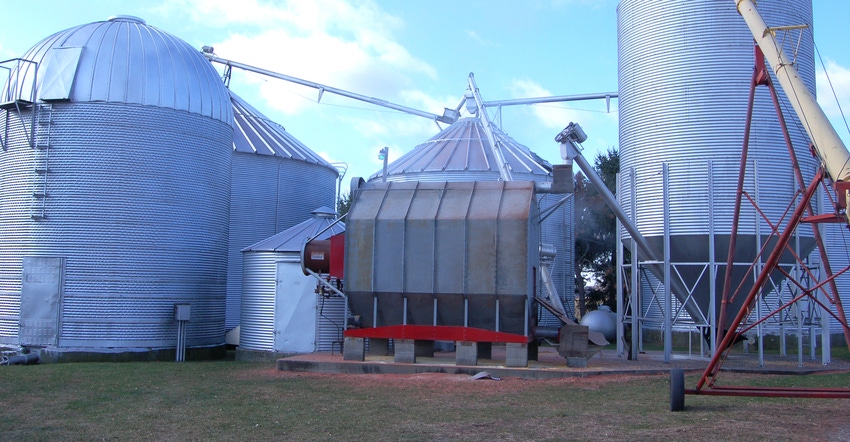November 28, 2019

The good news about grain handling is no grain bin entrapment fatalities were reported in the official summary of farm accident-related fatalities in 2018. There was one death documented inside a grain bin in Posey County, attributed to heat exhaustion.
The bad news is that some grain storage experts expect there could be more problems than usual with stored grain this year. Odds increase if grain was stored at higher moisture content than normal, wasn’t high quality in the first place or isn’t monitored carefully during storage. More reports of spoiled grain have surfaced over the past few years, especially in spring and summer months. Experts believe that’s likely because more people held grain longer, hoping for higher grain prices.
While there’s no documented proof that more incidents of spoiled grain inside bins leads to more plugged unloading augers and increased chances for grain entrapment, common sense and anecdotal evidence says otherwise. Personally, all victims I know of over the past several years who died inside grain bins were trying to clear clogs due to spoiled grain.
In all those cases, victims were inside the bin with the auger running. In two cases, there were people outside the bin, but entrapment happened so fast that the people outside didn’t even know there was a problem until it was too late.
Take precautions
Bill Field, Purdue University Extension farm safety specialist, helped write the report that indicates no one died in a grain bin entrapment incident in 2018 in Indiana. He also released a report in mid-2019 that summarizes all known injuries and fatalities in confined spaces across the U.S. Data for that report goes back to the 1970s, when Purdue’s Ag Safety and Health Program began documenting grain bin fatalities and injuries.
Over time, the report has expanded to include incidents involving grain wagons or trucks, augers, falls from or into confined spaces, and even incidents inside manure storage and transport facilities.
Nationwide, there were at least 61 fatal and nonfatal cases involving confined spaces in 2018, up 13% from 2017, Field reports. Of those 61 cases, 30 involved entrapment in grain bins. In 2018, 44% of the documented cases within confined spaces led to fatalities. Historically, that number is just under 60%.
Iowa, Wisconsin, Illinois, Nebraska and Ohio reported the most total cases in 2018. Historically, the leaders in Purdue’s dataset are Iowa, Indiana and Minnesota.
Does that mean you don’t practice as many safety techniques if you farm in Indiana? Not necessarily, Field observes. There tends to be more accidents inside bins and enclosed spaces where there are more bins and livestock barns.
“Indiana probably has more cases reported historically because of closer surveillance for these reports over the last 40 years,” Field says. “Grain bin entrapments were probably underreported for many years in some states.”
That doesn’t mean you can relax, especially if you have grain in bins now. Preventing grain bin fatalities means taking precautions, Field says. Lock out unloading auger power if you’re going inside a bin. Never go inside with the auger running. Always have somebody there on-site with visual contact.
In short, do whatever it takes to keep a “zero” in the line for ��“grain bin fatalities.” You certainly don’t want to become a statistic.
Comments? Email [email protected].
You May Also Like




